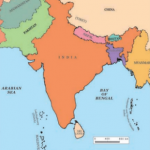Chief Justice of India-Role and Appointment
In News (Read in Hindi)
- Justice Jagdish Singh Khehar has been appointed as the 44th Chief Justice of India (CJI).
- The decade-old convention of appointment on the basis of seniority has been complied with.
- He will take office on January 4, 2017 after the incumbent CJI T.S.Thakur retires the day before. Justice Khehar will have a tenure of over seven months.
Appointment of the CJI
- Article 124 of the Indian Constitution gives the manner of appointment of judges to the Supreme Court.
- The President of India appoints the CJI after consultation with such judges of the Supreme Court and high courts as he deems necessary.
- By convention, the outgoing CJI recommends the name of the seniormost judge of the Supreme Court to the President of India, who then is appointed to the office of the CJI.
Qualifications
- He should be a citizen of India.
- He should have been for at least five years a Judge of a High Court or of two or more such courts in succession. OR
- He should have been for at least ten years an Advocate of a High Court or of two or more such courts in succession. OR
- He should be, in the opinion of the President, a distinguished jurist.
- This means that no minimum age has been prescribed for his appointment.
Tenure of office
- Once appointed, the CJI remains in office until he attains the age of 65 years.
- Article 124(4) deals with the procedure of his removal. He can be removed only by the process of impeachment by the Parliament i.e by the President on the recommendation of the Parliament. No judge of the Supreme Court has so far been impeached.
- He can also resign by writing to the President.
Role of CJI
- The CJI is the head of the Judiciary of India and the Supreme Court of India. It is the highest post that can be achieved by a judge in India.
- He allocates cases and appoints constitutional benches to deal with important cases of law.
- He also heads the administrative functions of the Supreme Court.
- Administrative Functions:
- He allocates matters to other judges of the SC.
- He maintains the roster.
- He appoints court officials.
- He also carries out other general functions relating to the SC.
- Other judges of the Supreme Court are appointed by the President of India after consulting the CJI and such other judges of the Supreme Court and high courts as he deems necessary. Consultation with the CJI for this purpose is obligatory.
- He acts as the President of India if the offices of both the President and the Vice-President lie vacant.











